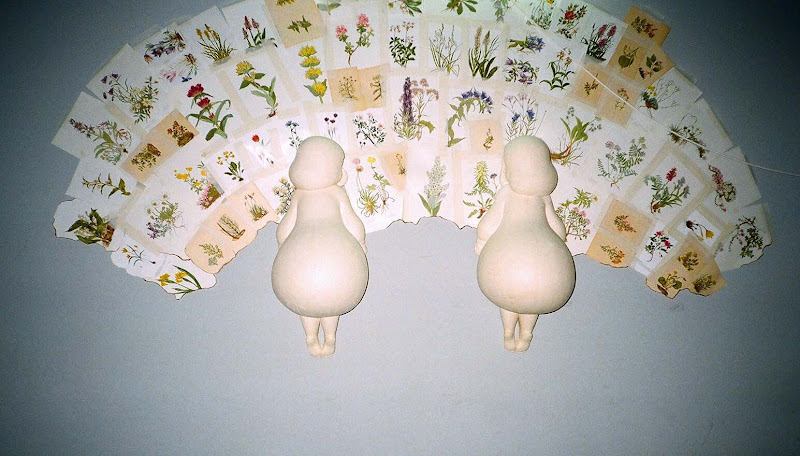Over the weekend I watched a Dr Who episode where the Doctor and his assistant are living in 2 worlds, both of which feel very real. They have to choose which one is real and which is the dream. If they die in the dream, they wake up in the real world, but if they die in the real world then they just "die, stupid."
Basically, their lives are at stake.
This episode got me thinking about the nature of travelling and the life narrative. Normally, when tourists travel to another country, they stitch their journey-chapter into their narrative; when they return, there will be others who remember the holiday and what was seen and done. Thus the holiday, though in another place, is easily recogniseable as part of the tourist's narrative.
Yet when I travel, to Berlin, to Paris, I do not travel with others from home, who will remember. When I return to London, there are none there who know my life in those other cities, no collective memory of that time, and so it feels as though I am switching lives, walking between worlds. There will be hardly any evidence, save perhaps the inches of dust rolling up in my room, to show that I have been anywhere else at all. I have built up new lives in these other places; made new friends; told new jokes and anecdotes; stocked new kitchen cupboards; formed new favourites; frequented new cafes, bakeries, clubs, cinemas, bookshops.
When Proust wrote of selves proliferating, he was referring to one individual whose various selves were divided by time and age: an older Marcel was able to write down younger Marcel's impressions. Yet for modern travellers, who can reach half way around the world in a number of hours, the multiplicity of selves results from a dislocation, not in time, but in space.
So my sejourn here in Europe is not just a continuation of the narrative; it is a fragment. It is a different life in a different world. I have barely aged between being in Paris and Berlin, yet these are two existences in which I, the "I", is a very different being, in which my worlds are galaxies apart. Even the plane journey felt like a Tardis trip. Viewed through the telescope of time, in hindsight, these two worlds will once again be fragments; anomalies; dreams. They feel so real now but will seem light years away when I go back* - sleepsung, sandy-eyed, awaking from that familiarly elusive Proustian dream - when I return to the milky, familiar cosmos of life in London.
* back in space but forwards in time.
Basically, their lives are at stake.
This episode got me thinking about the nature of travelling and the life narrative. Normally, when tourists travel to another country, they stitch their journey-chapter into their narrative; when they return, there will be others who remember the holiday and what was seen and done. Thus the holiday, though in another place, is easily recogniseable as part of the tourist's narrative.
Yet when I travel, to Berlin, to Paris, I do not travel with others from home, who will remember. When I return to London, there are none there who know my life in those other cities, no collective memory of that time, and so it feels as though I am switching lives, walking between worlds. There will be hardly any evidence, save perhaps the inches of dust rolling up in my room, to show that I have been anywhere else at all. I have built up new lives in these other places; made new friends; told new jokes and anecdotes; stocked new kitchen cupboards; formed new favourites; frequented new cafes, bakeries, clubs, cinemas, bookshops.
When Proust wrote of selves proliferating, he was referring to one individual whose various selves were divided by time and age: an older Marcel was able to write down younger Marcel's impressions. Yet for modern travellers, who can reach half way around the world in a number of hours, the multiplicity of selves results from a dislocation, not in time, but in space.
So my sejourn here in Europe is not just a continuation of the narrative; it is a fragment. It is a different life in a different world. I have barely aged between being in Paris and Berlin, yet these are two existences in which I, the "I", is a very different being, in which my worlds are galaxies apart. Even the plane journey felt like a Tardis trip. Viewed through the telescope of time, in hindsight, these two worlds will once again be fragments; anomalies; dreams. They feel so real now but will seem light years away when I go back* - sleepsung, sandy-eyed, awaking from that familiarly elusive Proustian dream - when I return to the milky, familiar cosmos of life in London.
* back in space but forwards in time.
